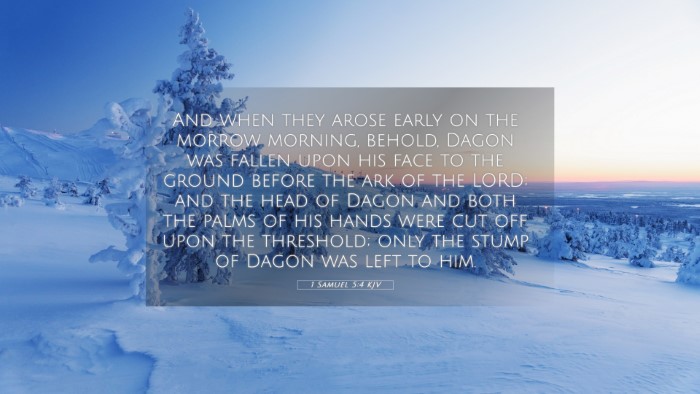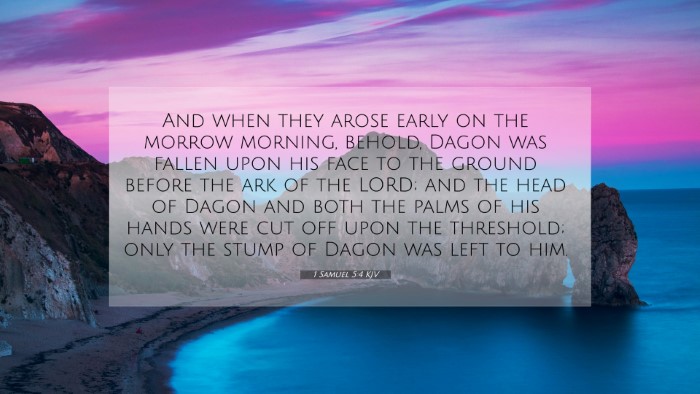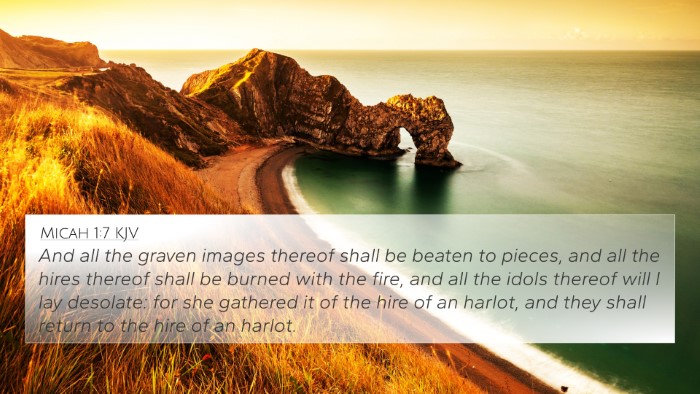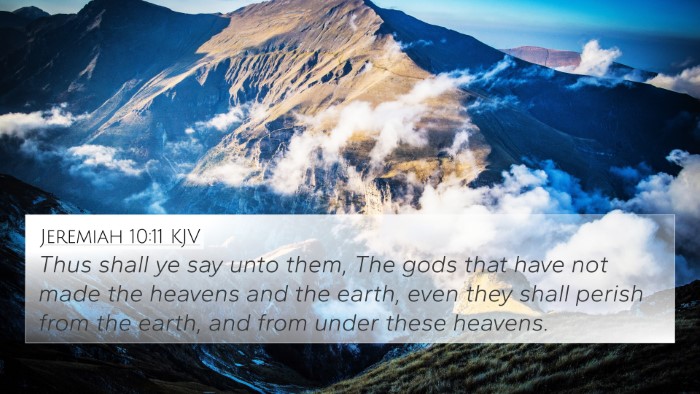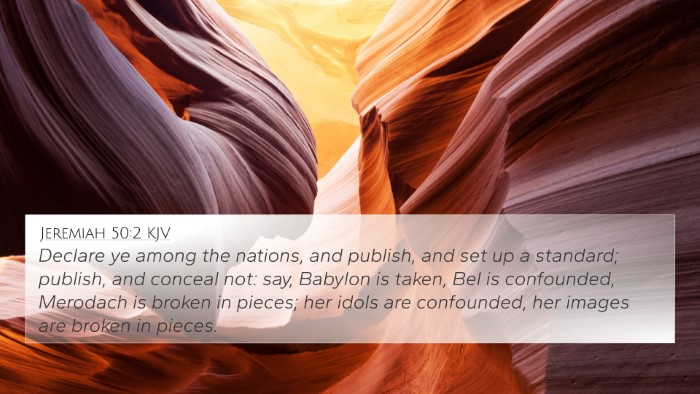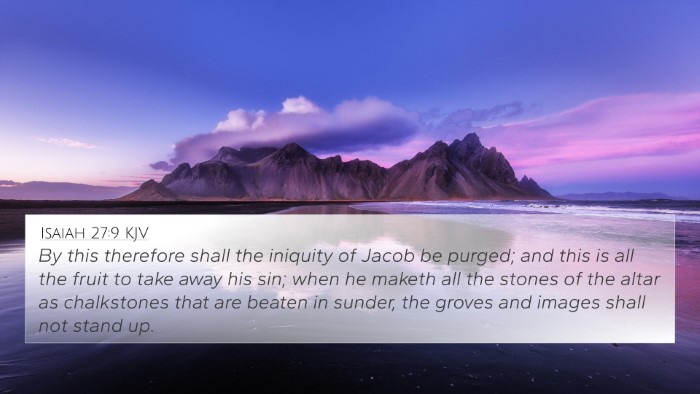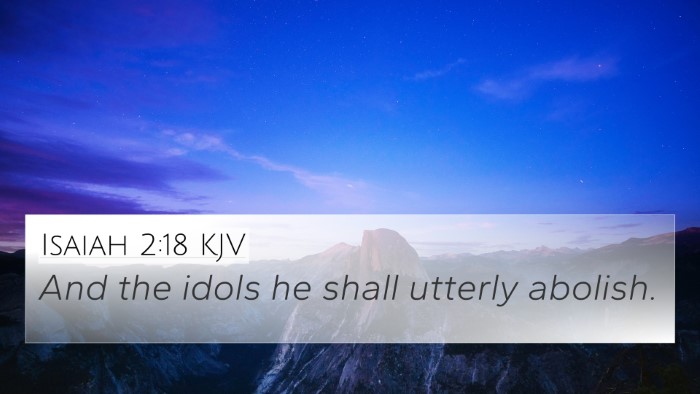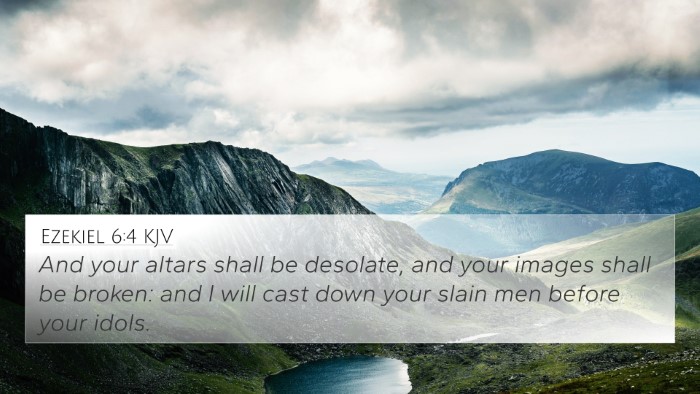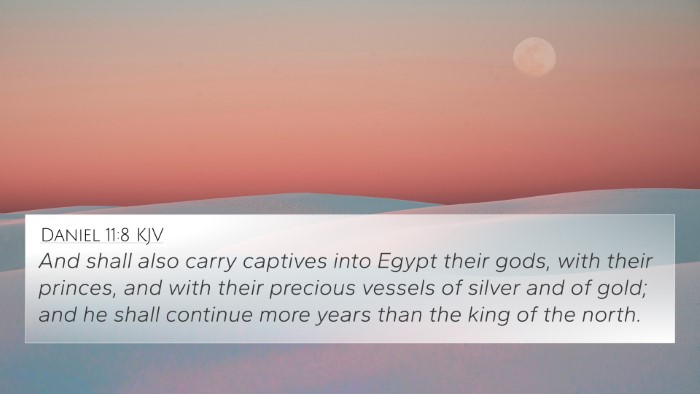Understanding 1 Samuel 5:4
1 Samuel 5:4 recounts a significant moment in the biblical narrative where the Philistines captured the Ark of the Covenant, which is a symbol of God's presence among the Israelites. This verse reports that when the Philistines placed the Ark in the temple of their god Dagon, the statue of Dagon fell before the Ark, emphasizing the supremacy of the God of Israel over the false gods of the Philistines.
This event illustrates God's sovereignty and serves as a form of divine rebuttal against idol worship. The significance lies in the contrast between the true God and the lifeless idols of the nations, showcasing the futility of opposing the Almighty.
Key Themes and Insights
- God's Supremacy: The fall of Dagon before the Ark signifies that no other god can stand before the God of Israel. As noted by Matthew Henry, this incident not only highlights the power of God but also serves as a reminder of the impotence of idols.
- Idolatry's Futility: Albert Barnes points out that this event serves as a warning against idolatry. It illustrates that idols, represented by Dagon, cannot possess the divine qualities attributed to the Lord.
- The Ark as a Symbol: The Ark represents not merely the physical presence of God but the covenant relationship He has with His people. Adam Clarke emphasizes that placing the Ark in the temple was an affront to Israel's divine identity.
- Divine Judgment: The falling of Dagon serves as a foreshadowing of God's judgment upon those who oppose Him. The miraculous event reveals God's displeasure with idol worship.
Connections and Cross-References
1 Samuel 5:4 can be effectively cross-referenced with several other scriptures to deepen understanding and establish thematic connections:
- Exodus 20:3-5: The commandment against idolatry, emphasizing the importance of worshiping God alone.
- Isaiah 46:1-2: A depiction of idols and the inability to save, paralleling the fall of Dagon.
- Psalm 115:4-8: A description of idols and their characteristics, reinforcing their inability to act or save.
- Jeremiah 10:5: Discusses the futility of idolatry, similar to the judgment represented by the fall of Dagon.
- 1 Chronicles 16:26: For all the gods of the people are idols, but the Lord made the heavens, reiterating the superiority of God.
- 2 Corinthians 10:4-5: The weapons we use in spiritual warfare, likening the confrontation with the Philistines to the Christian struggle against idols.
- Philippians 2:10-11: Every knee should bow; a prophetic insight into the ultimate recognition of God’s sovereignty over all gods and powers.
Cross-Referencing Themes and Analysis
In the context of inter-Biblical dialogue, 1 Samuel 5:4 encourages the believer to engage in cross-reference studies. By examining how various scriptures connect, deeper insights into God’s character and the historical context can be understood.
Tools for Study
- Bible Concordance: Useful for locating terms and themes related to idolatry and God’s majesty.
- Bible Cross-Reference Guide: Helps find links between verses that discuss the nature of God and the condemnation of idols.
- Cross-Reference Bible Study: Methods like parallel readings provide clarity on God's supremacy.
Conclusion
1 Samuel 5:4 is rich in meaning, revealing the overarching theme of God's sovereignty over all creation and the emptiness of idol worship. Through cross-referencing with other scriptures, one can see a broader picture of divine authority as well as the fundamental call to worship the one true God, further emphasized through the narratives of the Old and New Testaments.

